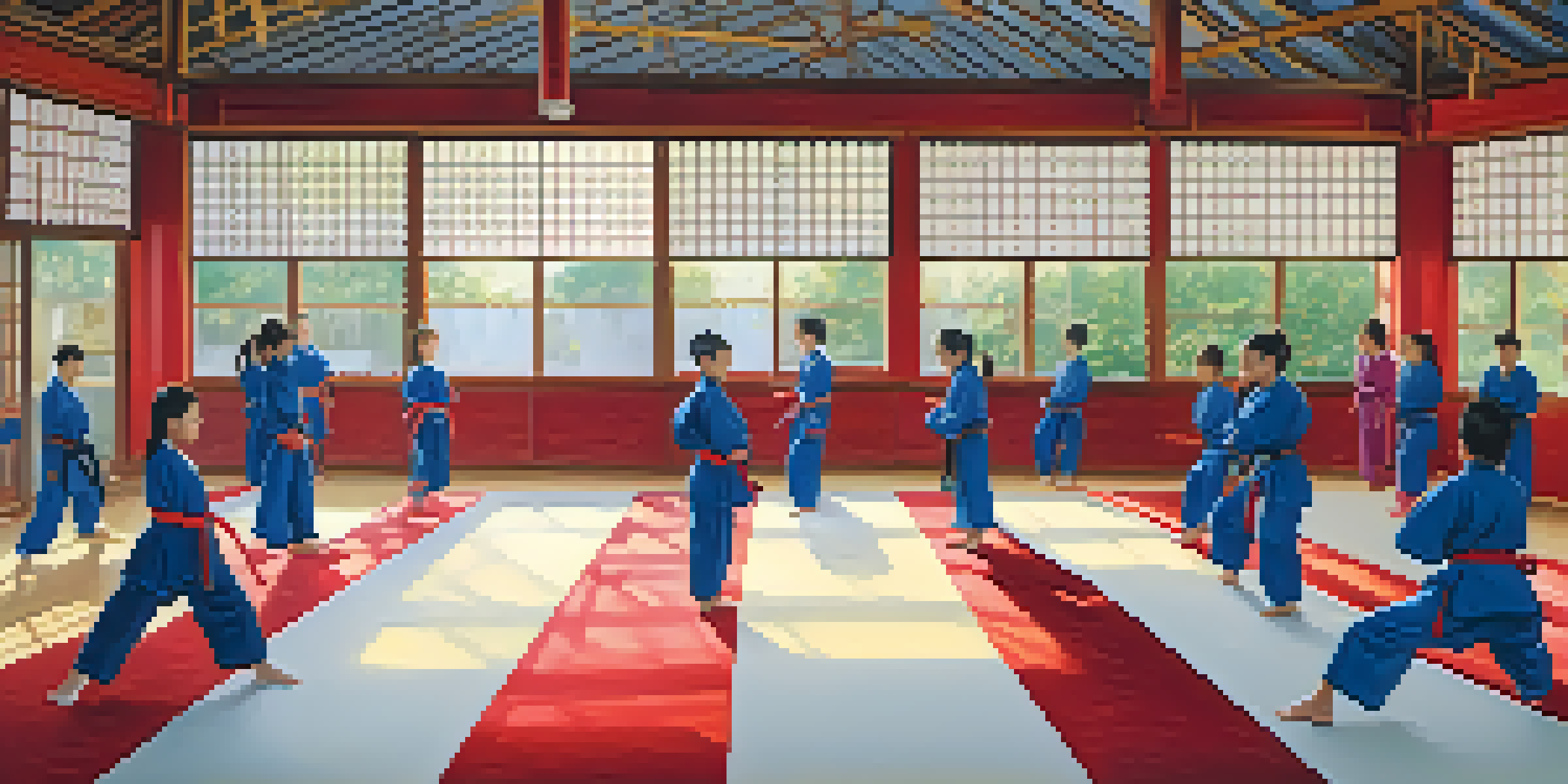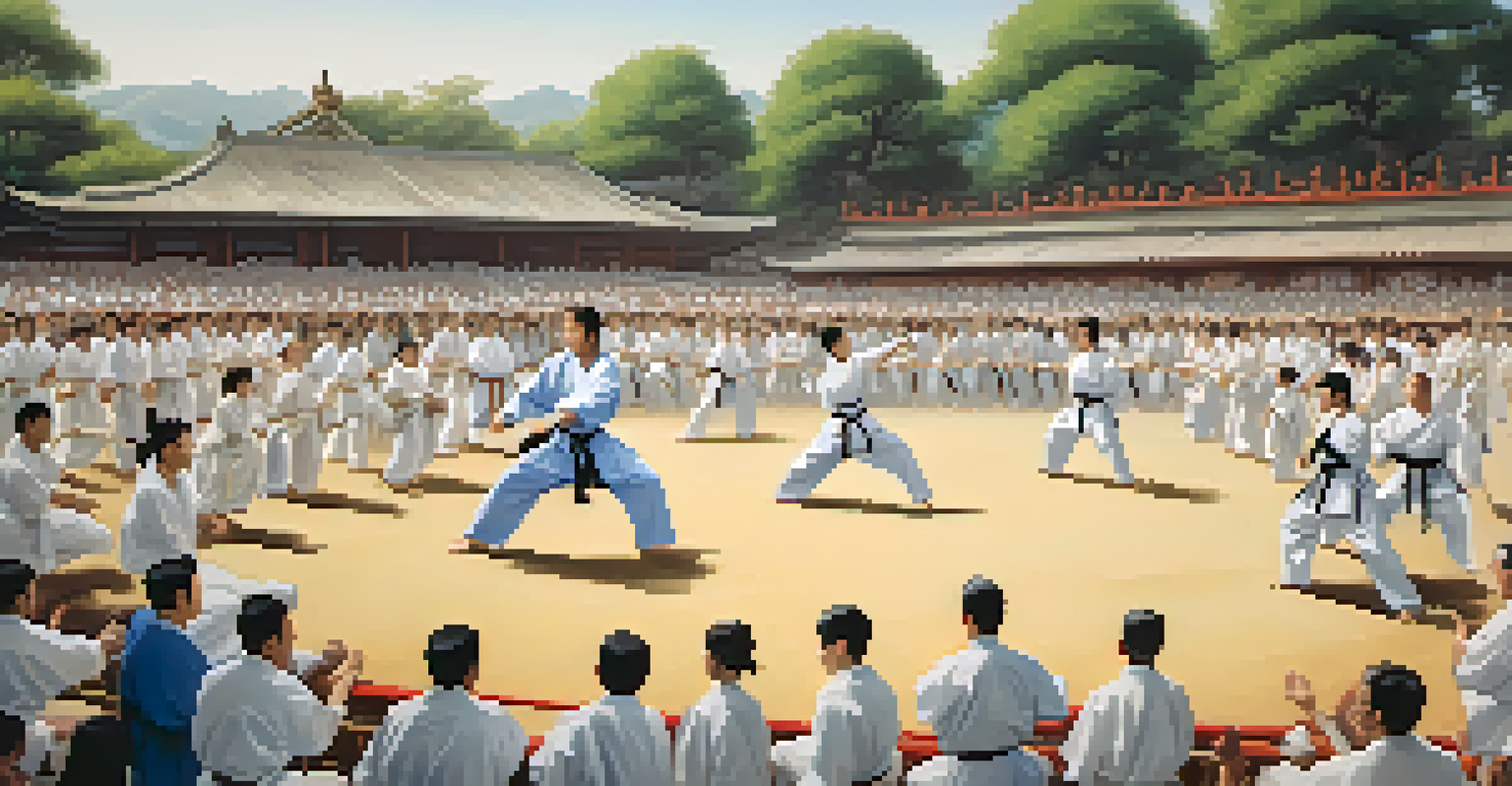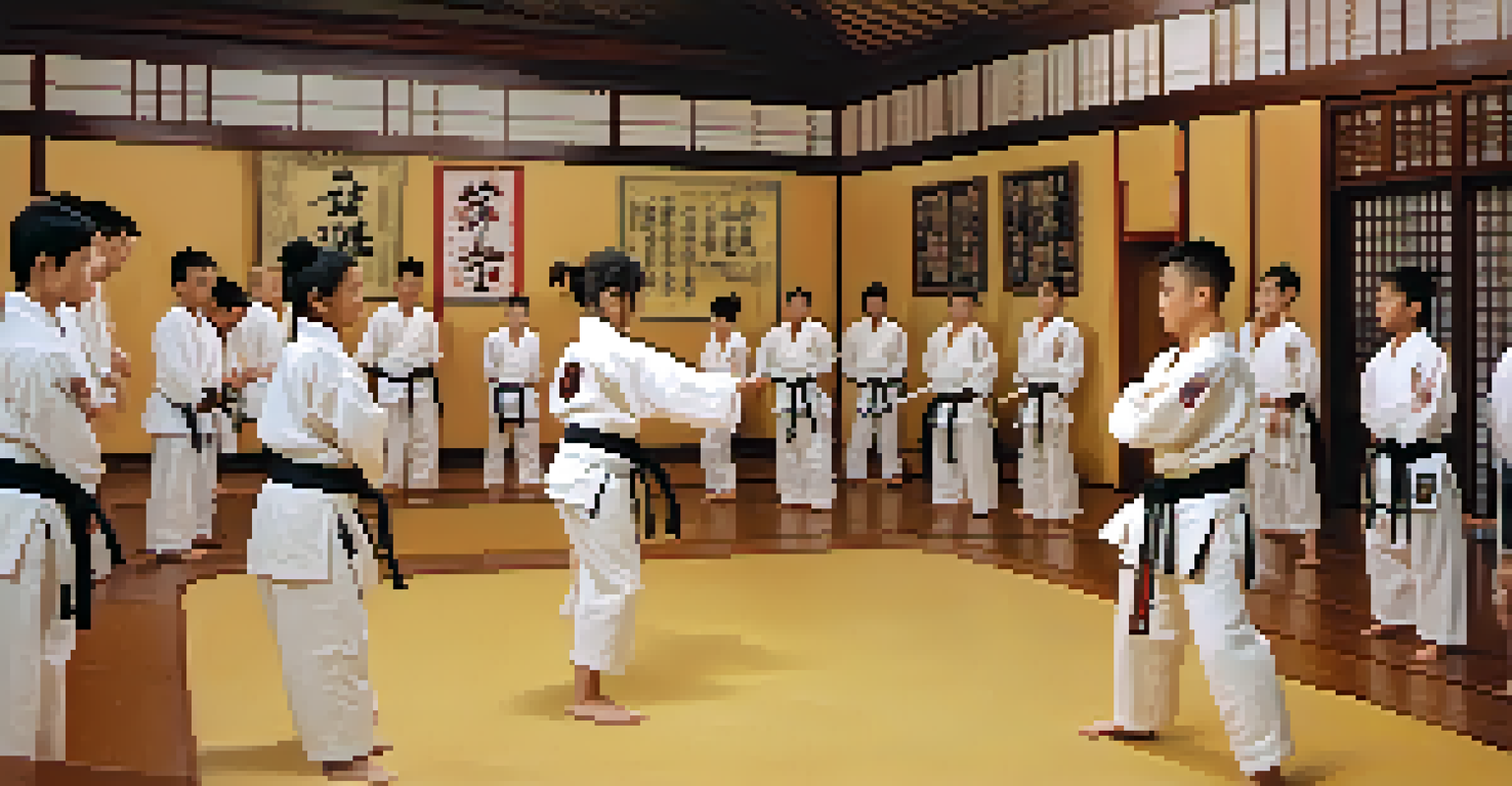Physical Activity Promotion Through Martial Arts Programs

Understanding Martial Arts and Its Appeal
Martial arts encompass a variety of disciplines, including karate, judo, and taekwondo, each offering unique techniques and philosophies. These practices not only focus on self-defense but also promote physical fitness, mental discipline, and personal growth. The appeal of martial arts lies in their ability to engage participants through structured training and a sense of community.
The ultimate aim of martial arts is not having to use them.
Many people are drawn to martial arts because they provide an engaging way to stay active. Unlike traditional gym workouts, martial arts combine physical movement with cultural elements, making each session feel like an adventure. This blend of fitness and fun helps participants stay committed and motivated over time.
By fostering a supportive environment, martial arts programs encourage individuals from all backgrounds to join in. Whether you're a child learning coordination or an adult seeking stress relief, there's a place for everyone in martial arts. This inclusivity not only enhances physical activity but also builds confidence and camaraderie.
Health Benefits of Regular Martial Arts Training
Engaging in martial arts offers numerous health benefits, both physical and mental. Regular training improves cardiovascular health, strength, flexibility, and coordination. As participants punch, kick, and spar, they also work out various muscle groups, leading to improved overall fitness.

Additionally, martial arts help in developing mental resilience and discipline. Practitioners learn to set goals, focus on their techniques, and push through challenges. This mental training can translate into better stress management and a more positive outlook on life.
Martial Arts Boosts Physical Health
Regular martial arts training enhances cardiovascular health, strength, and flexibility while promoting overall fitness.
Moreover, the social aspect of martial arts training cannot be overlooked. Practicing with peers not only makes workouts more enjoyable but also fosters a sense of belonging. This community support can encourage individuals to stick with their fitness routines, enhancing their overall well-being.
Martial Arts as a Tool for Youth Development
Martial arts programs are especially beneficial for children and adolescents. They provide a structured environment where young people can learn important life skills, such as respect, teamwork, and perseverance. These skills are vital as they navigate their formative years.
Martial arts is not about fighting; it's about building a better you.
As children participate in martial arts, they also improve their physical fitness and coordination. This increased activity can help combat issues like childhood obesity, promoting healthier lifestyles from a young age. Plus, the confidence gained through mastering new techniques can have lasting effects on their self-esteem.
Furthermore, martial arts can serve as a constructive outlet for energy and emotions. In a world where distractions abound, focusing on martial arts helps kids channel their enthusiasm into something productive. This not only aids in their physical development but also enhances their emotional regulation.
Creating Inclusive Martial Arts Programs
In order to promote physical activity effectively, martial arts programs must be inclusive and accessible to all. This means offering classes for varying skill levels, ages, and physical abilities. By doing so, more individuals can experience the benefits of martial arts, regardless of their starting point.
Inclusive programs might involve adaptive techniques for those with disabilities, ensuring everyone can participate. It's essential for instructors to be trained in these adaptations, allowing them to create an environment where every student feels welcome and supported. This focus on inclusivity enhances community engagement and promotes overall physical activity.
Youth Development Through Martial Arts
Martial arts provide children with essential life skills, physical fitness, and emotional regulation in a structured environment.
Moreover, outreach initiatives can help raise awareness about the availability of these programs. Partnering with schools, community centers, and local organizations can introduce martial arts to those who may not otherwise consider it. Such collaborations can create a ripple effect, increasing participation and fostering healthier communities.
The Role of Qualified Instructors in Martial Arts
Qualified instructors are vital to the success of martial arts programs, as they not only teach techniques but also motivate and inspire students. A knowledgeable instructor can tailor lessons to meet the needs of various participants, ensuring everyone benefits from their training. This personalized approach enhances the overall experience and promotes consistent physical activity.
Instructors also play a crucial role in fostering a safe and encouraging environment. By emphasizing safety protocols and proper techniques, they help prevent injuries and build students' confidence. This supportive atmosphere allows participants to take risks and challenge themselves without fear.
Moreover, a great instructor can instill a sense of purpose in their students. By sharing their passion and commitment to martial arts, they inspire others to pursue their goals, whether they involve achieving a new belt rank or simply improving fitness levels. This mentorship is fundamental in promoting long-term engagement in physical activities.
Building Community Through Martial Arts Events
Martial arts events, such as tournaments and demonstrations, play a vital role in building community and promoting physical activity. These gatherings bring together practitioners from different backgrounds, allowing them to showcase their skills while fostering camaraderie. Participants often leave events feeling inspired and encouraged to continue their training.
Such events also provide opportunities for practitioners to learn from one another. By watching others perform, individuals can gain new insights and techniques to enhance their own practice. This collaborative learning environment encourages continuous improvement and keeps participants engaged in their martial arts journey.
Community Support in Martial Arts
Inclusive martial arts programs foster a sense of belonging and encourage long-term engagement in physical activity.
Furthermore, community events can attract new participants, introducing them to the world of martial arts. By witnessing the excitement and passion at these gatherings, many may be motivated to join a local dojo or training program. This influx of new members can create a vibrant and diverse martial arts community, further promoting physical activity.
Promoting Lifelong Wellness Through Martial Arts
One of the most significant benefits of martial arts is its potential to promote lifelong wellness. As individuals engage in regular training, they build habits that prioritize physical activity and mental well-being. This foundation can lead to healthier lifestyle choices well into adulthood.
Martial arts instill values that extend beyond the training mat, such as respect, discipline, and perseverance. These principles can positively influence other areas of life, encouraging individuals to tackle challenges with determination. This mindset contributes to overall resilience and adaptability in the face of life's difficulties.

Lastly, the community built through martial arts often becomes a support system that encourages continued engagement in physical activities. As friendships grow within these programs, participants are more likely to stay motivated and accountable to one another. This social support network helps individuals maintain an active lifestyle, reinforcing the importance of wellness throughout their lives.